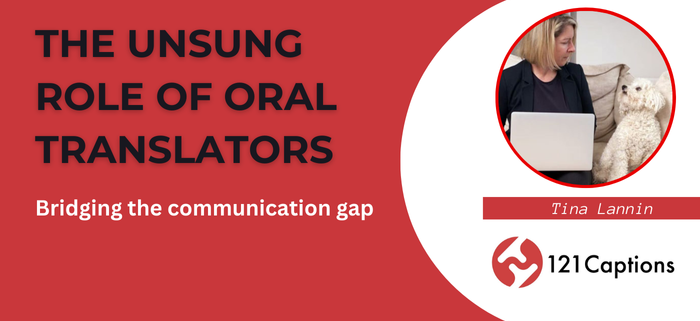The unsung role of oral translators
The need for effective communication has never been more critical. For individuals who are Deaf or hard of hearing, lip reading offers a powerful bridge over communication barriers, allowing them to participate fully in conversations and daily interactions. This is where the expertise of an oral translator comes into play—a role that is often misunderstood but is essential in numerous settings.
What is an Oral Translator?
An oral translator, unlike a traditional translator, specialises in interpreting spoken language through the art of lip reading. They are skilled professionals who can accurately read lips, taking into account not only the movement of the lips but also facial expressions, speech patterns, and hand gestures. This nuanced understanding allows them to convey spoken messages effectively to those who are Deaf or hard of hearing.
The role requires an exceptional skill set, as it involves deciphering communication that is predominantly non-verbal. A significant portion of human interaction is conveyed through facial cues, which oral translators must interpret with precision. This skill is not just about seeing the words formed on lips; it’s about understanding the emotions and intent behind those words, much like reading the hidden cues in a poker game where players often conceal their thoughts behind sunglasses.
The broad applications of oral translation
Oral translation is not limited to aiding those with hearing impairments. Its applications are diverse and often critical in various professional fields. At 121 Captions, we work extensively with security firms, legal professionals, and law enforcement agencies. For example, in legal contexts, where CCTV footage often lacks accompanying audio, forensic lip readers are employed to provide crucial insights during investigations. These professionals can reconstruct conversations that might otherwise remain unheard, aiding in crime prevention and resolution.
In the media industry, particularly in sports coverage, oral translators are increasingly sought after. Reporters and broadcasters often rely on them to decode what players are saying during games, leading to potential headlines and insights that might not be captured by microphones.
Medical scenarios also benefit from the expertise of oral translators. In cases where patients are unable to speak due to their condition, these professionals can interpret lip movements, providing vital communication links between patients and healthcare providers. This not only enhances patient care but also ensures that critical medical information is communicated accurately.
The human touch in oral translation
Despite advances in automated lip-reading technologies, human oral translators remain unmatched in their ability to grasp context and deliver nuanced interpretations. Technology can struggle with the complexities of real-life conversations, such as regional accents, slang, or the emotional undertones that a human translator can pick up on intuitively.
Oral translators bring an irreplaceable human touch to their work. They build trust and rapport with the individuals they assist, making communication not only more effective but also more empathetic. This is particularly important in sensitive or high-stakes situations, where the accuracy and discretion of the translator are paramount.
Leading the way in professional lip reading
At the forefront of this field is Tina Lannin, founder and owner of 121 Captions. Tina, who was born deaf, is one of the world’s leading experts in professional lip reading. Her expertise is regularly sought by solicitors, courts, and media outlets, including high-profile events like the Royal Weddings. Her ability to lip read in multiple languages, including Arabic, German, Japanese, and Spanish, sets her apart as a global leader in the field.
Tina’s work underscores the importance of professional oral translators in ensuring that communication is accessible and inclusive, whether it’s for a courtroom, a newsroom, or a patient’s bedside.
The impact of oral translators
Oral translators play a crucial role in breaking down communication barriers, fostering inclusivity, and ensuring that everyone, regardless of their hearing ability, can participate fully in society. Their expertise is not just about translating words—it’s about connecting people, understanding context, and conveying meaning in its fullest sense.
If your organisation requires the services of an oral translator, you’re not just hiring a professional—you’re investing in the power of inclusive communication. At 121 Captions, we are proud to offer some of the best oral translators in the world, ready to enhance your communication experience with precision and empathy. Contact us today to learn more about how we can support your needs.




Leave a Reply
Want to join the discussion?Feel free to contribute!